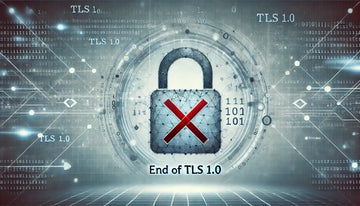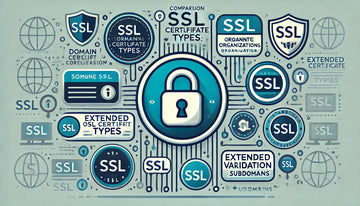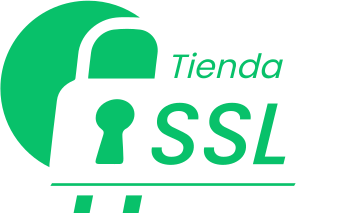Securing your website with an SSL certificate is crucial in today’s online environment. Whether it’s for encrypting data, improving search rankings, or building trust with your visitors, having a secure connection via HTTPS is a must. But when it comes to choosing between free and paid SSL certificates, many website owners are unsure which option best fits their needs.
In this blog post, we’ll break down the differences between free and paid SSL certificates, their advantages and disadvantages, and help you decide which is the right choice for your website.
What is an SSL Certificate?
An SSL (Secure Sockets Layer) certificate is a digital certificate that authenticates the identity of a website and enables an encrypted connection between the web server and a user's browser. This encryption ensures that any data exchanged between the two remains secure and protected from hackers or third parties.
When a website uses an SSL certificate, its URL changes from “HTTP” to “HTTPS,” with the "S" standing for secure. Visitors can also see a padlock symbol in the address bar, which signals that the site is encrypted and safe to browse or perform transactions on.
Free SSL Certificates
What Are Free SSL Certificates?
Free SSL certificates are SSL certificates provided at no cost by certain certificate authorities (CAs). One of the most popular providers of free SSL certificates is Let's Encrypt, a non-profit organization that aims to create a more secure web by offering free SSL to everyone. These certificates are designed to provide basic encryption for websites and are particularly beneficial for smaller sites or personal blogs.
Advantages of Free SSL Certificates
-
Cost-Effective The most obvious advantage of free SSL certificates is that they are free. This makes them an attractive option for individuals or small businesses that want to secure their website without incurring additional costs.
-
Basic Encryption Free SSL certificates provide the same level of encryption as paid SSL certificates, which means that visitors’ data is protected from potential threats. For most small websites or blogs, this level of security is sufficient.
-
Easy to Install Many web hosting providers offer free SSL certificates as part of their hosting packages. These certificates can usually be installed with just a few clicks, making them accessible to website owners with minimal technical expertise.
Disadvantages of Free SSL Certificates
-
Limited Validation Free SSL certificates generally provide domain validation (DV) only, which means that the certificate authority verifies that the applicant owns the domain. However, free SSL certificates do not include organization validation (OV) or extended validation (EV), which means they do not offer the same level of trust as paid certificates.
-
Short Lifespan Free SSL certificates typically have a shorter lifespan than paid certificates, often lasting 90 days before needing renewal. Although some providers offer automated renewal, it can be inconvenient for website owners who need long-term SSL solutions.
-
No Warranty Free SSL certificates do not come with a warranty. This means that if something goes wrong and your site is compromised due to a flaw in the certificate, there is no financial protection from the certificate authority.
Paid SSL Certificates
What Are Paid SSL Certificates?
Paid SSL certificates are issued by trusted certificate authorities such as Comodo, DigiCert, or Symantec. These certificates often come with additional features, higher levels of validation, and support, making them ideal for larger businesses, e-commerce websites, or anyone handling sensitive customer data.
Advantages of Paid SSL Certificates
-
Extended Validation (EV) and Organization Validation (OV) Paid SSL certificates offer higher levels of validation, including OV and EV certificates. EV SSL certificates provide the green address bar and display the company’s name in the browser, offering maximum trust and reassurance for users. OV certificates verify the organization’s identity, providing an additional layer of trust compared to domain-validated certificates.
-
Warranty and Support Paid SSL certificates come with a warranty that provides financial protection in case of a security breach due to a flaw in the certificate. The warranty amount can vary depending on the certificate type and provider. Additionally, paid SSL certificates often come with customer support, which can be invaluable for businesses needing assistance with installation, troubleshooting, or renewals.
-
Flexibility and Features Paid SSL certificates come with additional features, such as wildcard SSL (which secures a domain and all its subdomains) and multi-domain SSL (which secures multiple domains with one certificate). These options are especially useful for larger businesses with more complex website structures.
-
Longer Lifespan Paid SSL certificates often have a lifespan of one to two years, making them more convenient for website owners who don’t want to worry about frequent renewals. This stability can be especially important for businesses that want to avoid service interruptions.
Disadvantages of Paid SSL Certificates
-
Cost The most significant downside to paid SSL certificates is the cost. Depending on the certificate authority and the level of validation, paid SSL certificates can range from $10 to $500 or more per year. For individuals or small businesses with limited budgets, this cost can be prohibitive.
-
More Complex Installation Installing paid SSL certificates can be more complicated than free ones, especially for website owners who are not familiar with technical setups. However, most providers offer step-by-step guides and support to help with the installation process.
Key Differences Between Free and Paid SSL Certificates
| Feature | Free SSL Certificates | Paid SSL Certificates |
|---|---|---|
| Cost | Free | Varies ($10–$500/year or more) |
| Validation | Domain Validation (DV) only | Offers Domain, Organization, and Extended Validation (OV and EV) |
| Warranty | None | Yes, typically ranging from $10,000 to $1.5 million |
| Support | Limited or none | Full customer support from the certificate authority |
| Lifespan | 90 days | 1–2 years |
| Trust Level | Basic (DV only) | High (OV/EV with company details displayed) |
| Features | Basic encryption | Wildcard, multi-domain, etc. |
Which SSL Certificate is Right for Your Website?
Choosing between free and paid SSL certificates depends largely on the type of website you operate, your budget, and the level of trust you need to establish with your visitors.
When to Choose Free SSL Certificates
-
Small Blogs or Personal Websites: If you run a blog, portfolio site, or personal website, free SSL certificates are likely sufficient. They provide the necessary encryption to secure data and improve SEO without the cost associated with paid certificates.
-
Low Budget Projects: If you’re working with a limited budget, free SSL certificates allow you to secure your website without any additional expenses.
When to Choose Paid SSL Certificates
-
E-commerce Websites: If your website handles sensitive customer data such as credit card information or personal details, a paid SSL certificate with OV or EV validation is essential. The added trust and warranty provided by paid certificates are invaluable for e-commerce sites.
-
Businesses and Corporations: For businesses that want to present a professional, trustworthy image, paid SSL certificates offer extended validation and higher security. The green address bar and company name displayed with EV certificates reassure customers that the business is legitimate.
-
Websites with Multiple Domains: If you need to secure multiple domains or subdomains, a paid SSL certificate that offers wildcard or multi-domain features is the best option. Free SSL certificates do not provide these features, which can make managing security for multiple domains more challenging.
Conclusion: Free vs. Paid SSL – Which Is Best?
Both free and paid SSL certificates offer important security benefits, but the right choice depends on your website’s specific needs. For personal blogs, small websites, or those on a tight budget, free SSL certificates provide adequate encryption and SEO benefits. However, businesses, e-commerce sites, and organizations handling sensitive data should opt for paid SSL certificates, which offer enhanced security, extended validation, and greater customer trust.
Ultimately, securing your website with SSL—whether free or paid—is critical in today’s online world. It protects your users, builds trust, and improves your website’s visibility in search engine results.














